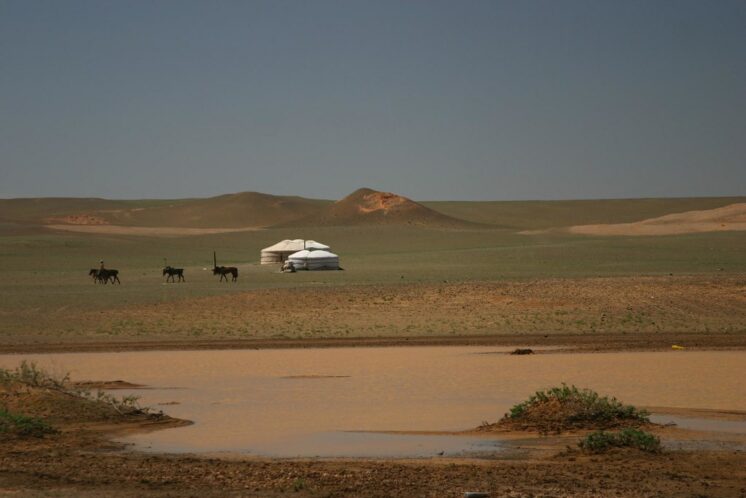A Canadian mining company, ION Energy, acquired a license to explore and conduct studies on a confirmed lithium brine deposit in the Mongolian Gobi desert. This license is a part of an agreement between the government of Canada and Mongolia signed in 2017. The concession is worth $310,000. Canada has been playing a role in shaping the extractive industry and policy reform in Mongolia.
 Photo: "080706-072253-Gobi Desert-Mongolia.JPG" by PnP! is licensed under CC BY-NC-ND 2.0
Photo: "080706-072253-Gobi Desert-Mongolia.JPG" by PnP! is licensed under CC BY-NC-ND 2.0A question to raise is who benefits from and who is left out of the shift toward de-carbonization. The experience of the “lithium triangle” in South America shows different impacts on the environment. Similar environmental and social impacts of lithium mining will likely happen also in Mongolia. Lithium brine extraction through evaporation. In Atacama, Chile, the extraction requires creating extraction pools by pumping in water from other sources. The use of millions of liters of water in the process can have devastating effects on the environment by creating water shortages and restricting community access to water.
Former Soviet Union Central Asia has gone through fragmentation, land grabs, and claims on minerals and metals — from uranium-rich Kazakhstan to oil-rich Turkmenistan. Mongolia is being de-militarized as a NATO partner. The privatization of land in Mongolia is hand in hand with the restructuring of the country’s economy. Mongolia is also in between Russia and China, a border it shares with Xinjiang.
Read more.











